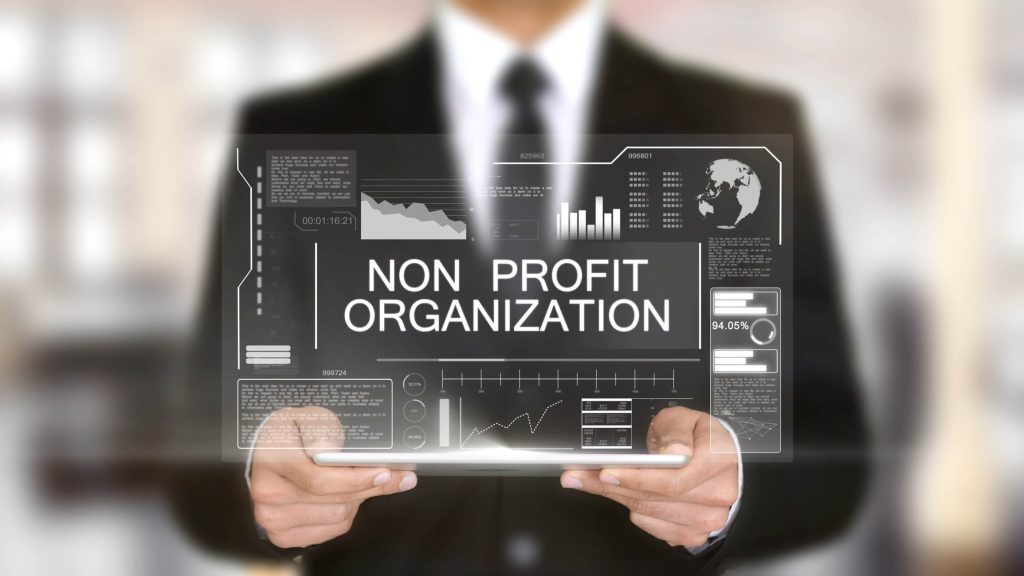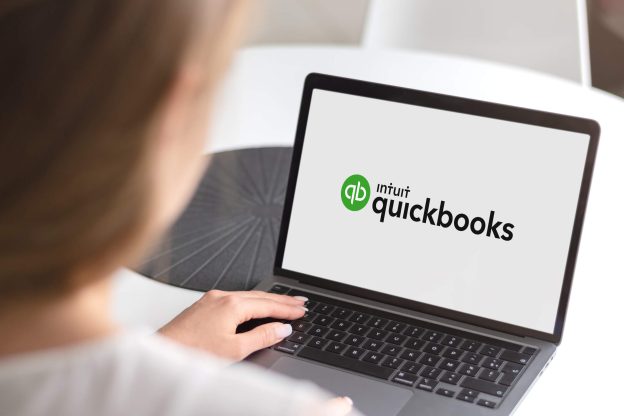Non-profit organizations play a crucial role in society by addressing various social, environmental, and humanitarian issues. These organizations heavily rely on donations and fundraising efforts to support their missions. In today’s digital age, accepting credit card payments has become essential for non-profits to maximize their fundraising potential. This is where merchant services come into play. In this comprehensive article, we will explore the importance of merchant services for non-profits, the benefits they offer, different types of merchant services available, how to choose the right provider, key considerations when setting up merchant services, associated costs, security and compliance measures, strategies to maximize donations, and successful case studies.
Understanding the Importance of Merchant Services for Non-Profits
Accepting credit card payments has become a necessity for non-profit organizations due to the changing preferences of donors. In today’s cashless society, fewer people carry cash, and they prefer the convenience of using credit or debit cards for transactions. By offering credit card payment options, non-profits can tap into a larger donor base and increase their chances of receiving donations. According to a study 82% of Americans have at least one credit card, making it crucial for non-profits to adapt to this payment method.
Furthermore, merchant services provide non-profits with the ability to accept online donations. With the rise of e-commerce and online giving platforms, donors expect the convenience of making donations from the comfort of their homes. By incorporating merchant services, non-profits can provide a seamless online donation experience, attracting tech-savvy donors who prefer digital transactions.
How Merchant Services Can Benefit Non-Profit Organizations

Merchant services offer numerous benefits to non-profit organizations. Firstly, they enhance the overall donor experience by providing convenient payment options. By accepting credit card payments, non-profits eliminate the need for donors to carry cash or write checks, making it easier for them to contribute to the cause. This convenience can lead to increased donations and donor retention.
Secondly, merchant services enable non-profits to expand their reach beyond local communities. With online payment capabilities, non-profits can receive donations from supporters across the globe. This opens up new avenues for fundraising and allows non-profits to connect with a wider audience.
Additionally, merchant services provide non-profits with valuable data and analytics. By tracking and analyzing transaction data, non-profits can gain insights into donor behavior, preferences, and giving patterns. This information can be used to tailor fundraising campaigns, improve donor engagement strategies, and optimize fundraising efforts.
Exploring Different Types of Merchant Services for Non-Profits
There are several types of merchant services available for non-profit organizations. The most common ones include:
- Credit Card Processing: This service enables non-profits to accept credit and debit card payments in-person, online, or over the phone. Non-profits can choose between traditional credit card terminals, mobile card readers, or virtual payment gateways to process transactions.
- Payment Gateways: These platforms allow non-profits to accept online donations securely. They provide a seamless integration with non-profit websites, enabling donors to make contributions with ease.
- Recurring Donations: Some merchant service providers offer recurring donation options, allowing non-profits to set up automatic monthly or annual donations. This feature is particularly useful for donor retention and creating a steady stream of income.
- Mobile Payments: With the increasing use of smartphones, non-profits can leverage mobile payment solutions to accept donations on the go. Mobile payment apps and card readers enable non-profits to collect funds at events, fundraisers, or even on the streets.
Choosing the Right Merchant Service Provider for Your Non-Profit
Selecting the right merchant service provider is crucial for non-profit organizations. Here are some key considerations to keep in mind:
- Non-Profit Expertise: Look for a provider that specializes in serving non-profit organizations. They will have a better understanding of the unique needs and challenges faced by non-profits and can offer tailored solutions.
- Pricing Structure: Compare the pricing models of different providers. Some charge a flat fee per transaction, while others have a percentage-based fee. Consider your organization’s transaction volume and choose a pricing structure that aligns with your budget.
- Integration Capabilities: Ensure that the merchant service provider can seamlessly integrate with your existing systems, such as your website, donor management software, or CRM. This will streamline your operations and provide a cohesive donor experience.
- Security Measures: Non-profits handle sensitive donor information, so it’s crucial to choose a provider that prioritizes data security. Look for providers that comply with Payment Card Industry Data Security Standard (PCI DSS) requirements and offer encryption and tokenization technologies.
- Customer Support: Consider the level of customer support provided by the merchant service provider. Non-profits may require assistance with technical issues, troubleshooting, or account management. Choose a provider that offers reliable and responsive customer support.
Key Considerations When Setting Up Merchant Services for Non-Profits
When setting up merchant services for non-profit organizations, there are several key considerations to keep in mind:
- Legal and Tax Compliance: Non-profits must ensure compliance with relevant laws and regulations, such as tax-exempt status requirements and reporting obligations. Consult with legal and financial professionals to ensure compliance.
- Donor Privacy: Non-profits must prioritize donor privacy and data protection. Implement robust security measures to safeguard donor information and comply with data protection regulations.
- Donor Communication: Clearly communicate to donors how their information will be used and stored. Provide transparency regarding data security measures to build trust and confidence in your organization.
- Training and Education: Train staff members on how to handle credit card transactions securely and educate them about potential fraud risks. This will help prevent data breaches and protect your organization’s reputation.
- Reporting and Analytics: Take advantage of the data and analytics provided by your merchant service provider. Regularly review transaction reports, donor behavior, and other metrics to gain insights and optimize your fundraising strategies.
Understanding the Costs Associated with Merchant Services for Non-Profits

The costs associated with setting up merchant services for non-profits can vary depending on the provider and the services required. Here are some common costs to consider:
- Setup Fees: Some providers charge a one-time setup fee to establish your merchant account. This fee covers the administrative costs associated with onboarding your organization.
- Transaction Fees: Transaction fees are charged for each credit card transaction processed. These fees can be a flat rate per transaction or a percentage of the transaction amount. Compare the transaction fees of different providers to find the most cost-effective option.
- Monthly Fees: Some providers charge a monthly fee for maintaining your merchant account. This fee covers ongoing support, access to reporting tools, and customer service.
- Equipment Costs: If you require physical equipment, such as credit card terminals or mobile card readers, there may be additional costs associated with purchasing or leasing the equipment.
- Chargeback Fees: In the event of a disputed transaction or chargeback, some providers charge a fee to cover the administrative costs of handling the dispute.
It’s important to carefully review the pricing structure and terms of service provided by different merchant service providers to understand the full cost implications.
Ensuring Security and Compliance in Non-Profit Merchant Services
Security and compliance are paramount when it comes to non-profit merchant services. Non-profits handle sensitive donor information, including credit card details, and must take appropriate measures to protect this data. Here are some best practices to ensure security and compliance:
- PCI DSS Compliance: Ensure that your merchant service provider is PCI DSS compliant. PCI DSS is a set of security standards established by major credit card companies to protect cardholder data. Compliance with these standards helps prevent data breaches and fraud.
- Encryption and Tokenization: Implement encryption and tokenization technologies to protect sensitive data during transmission and storage. Encryption converts data into an unreadable format, while tokenization replaces sensitive data with unique tokens.
- Secure Payment Gateway: Choose a secure payment gateway that encrypts data during online transactions. Look for providers that offer SSL (Secure Sockets Layer) encryption and adhere to industry best practices.
- Regular Security Audits: Conduct regular security audits to identify vulnerabilities and ensure compliance with security standards. Engage third-party security experts to perform penetration testing and vulnerability assessments.
- Staff Training: Train staff members on security best practices, such as password management, recognizing phishing attempts, and handling sensitive data. Regularly update training to stay informed about emerging threats.
By implementing these security measures, non-profits can protect donor data, maintain trust, and mitigate the risk of data breaches.
Maximizing Donations through Effective Merchant Services Strategies
Merchant services can be leveraged to maximize donations for non-profit organizations. Here are some strategies to consider:
- Simplify the Donation Process: Make the donation process as simple and convenient as possible. Optimize your website’s donation page, provide clear instructions, and minimize the number of steps required to complete a donation.
- Offer Recurring Donations: Encourage donors to set up recurring donations to create a steady stream of income. Highlight the impact of recurring donations and the convenience they offer to donors.
- Provide Multiple Payment Options: Offer a variety of payment options, including credit cards, debit cards, and digital wallets. Cater to the preferences of different donors to maximize participation.
- Utilize Social Media: Leverage social media platforms to promote your organization’s mission and fundraising campaigns. Incorporate donation links or buttons directly into your social media posts to facilitate easy giving.
- Personalize Thank You Messages: Show appreciation to donors by sending personalized thank you messages. Acknowledge their contribution and highlight the impact of their support.
- Donor Recognition: Recognize and celebrate donors publicly to foster a sense of community and encourage others to contribute. Highlight the achievements and impact of your donors through newsletters, social media, or events.
By implementing these strategies, non-profits can enhance donor engagement, increase participation, and ultimately maximize donations.
FAQs:
Q.1: What are merchant services, and why are they important for non-profit organizations?
Merchant services refer to the financial services and technologies that enable businesses, including non-profit organizations, to accept credit card payments. They are important for non-profits as they provide convenient payment options for donors, expand their reach, and offer valuable data and analytics.
Q.2: How do non-profits benefit from accepting credit card payments?
Non-profits benefit from accepting credit card payments as it increases their chances of receiving donations. By offering credit card payment options, non-profits tap into a larger donor base and provide convenience to donors who prefer digital transactions.
Q.3: What types of merchant services are available for non-profit organizations?
Non-profit organizations can choose from various types of merchant services, including credit card processing, online payment gateways, recurring donations, and mobile payments. These services cater to different donation channels and provide flexibility for donors.
Q.4: How can non-profits choose the right merchant service provider?
Non-profits should consider factors such as non-profit expertise, pricing structure, integration capabilities, security measures, and customer support when choosing a merchant service provider. It’s important to find a provider that aligns with the organization’s specific needs and requirements.
Q.5: What are the costs associated with setting up merchant services for non-profits?
The costs associated with setting up merchant services for non-profits can include setup fees, transaction fees, monthly fees, equipment costs, and chargeback fees. The exact costs depend on the provider and the services required.
Q.6: How can non-profits ensure the security and compliance of their merchant services?
Non-profits can ensure security and compliance by choosing a provider that is PCI DSS compliant, implementing encryption and tokenization technologies, using secure payment gateways, conducting regular security audits, and providing staff training on security best practices.
Q.7: Are there any strategies to maximize donations through merchant services?
Non-profits can maximize donations through merchant services by simplifying the donation process, offering recurring donations, providing multiple payment options, utilizing social media, personalizing thank you messages, and recognizing donors publicly.
Conclusion: Empowering Non-Profits with Effective Merchant Services
Merchant services play a vital role in empowering non-profit organizations to maximize their fundraising potential. By accepting credit card payments and offering online donation options, non-profits can tap into a larger donor base and provide convenience to their supporters. The various types of merchant services available, such as credit card processing, online payment gateways, recurring donations, and mobile payments, cater to different donation channels and preferences.
By leveraging effective merchant services strategies, non-profits can enhance donor engagement, increase participation, and ultimately maximize donations. Case studies of successful implementation in non-profit organizations demonstrate the positive impact of merchant services on fundraising efforts.
In conclusion, merchant services are essential tools for non-profit organizations to adapt to the digital age, expand their reach, and create a seamless donor experience. By embracing these services, non-profits can continue to make a significant impact on the causes they support.

